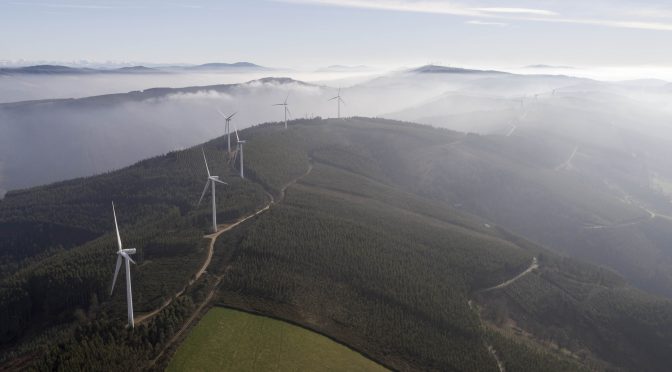The wind sector expresses its strongest rejection of the Xunta de Galicia’s proposal to force Galician wind farms to be sold 50 percent of their electricity generated by wind power facilities to exclusively Galician companies through PPAs
?? The new proposal of the Xunta de Galicia consists of forcing Galician wind farms to sell 50% of their electricity to Galician SMEs and companies through PPAs. This proposal goes against the European Union’s electricity market legislation, competition regulations and the Electricity Sector Law. Any intervention in a liberalized market is an attack on the fundamental rights that govern the Galician autonomous community itself, in Spain and Europe.
?Galicia needs regulatory stability and legal certainty. This new announcement worsens the situation of instability for companies. From the wind sector we demand that common sense and respect for current national and European legislation prevail.
?Forcing wind developers to sell 50% of their energy to Galician SMEs and companies violates competition and free market regulations and would have negative consequences for the economic development of the region, and could even increase the price of electricity for consumers.
?The measure, if successful, will imply international sanctions and would activate international arbitration.
?The measure would force the breaking of contracts that developers had already signed with consumers, generating judicialization throughout the sector. There are companies that already have all their energy committed through PPAs with industrialists until beyond 2030.
?A regional law can in no case contradict a state law, much less a European one. The proposal of the Xunta de Galicia violates, among others, the following legal aspects:
?The configuration of the generation of electric energy as a liberalized and free activity (article 2, law 24/2013 of the electric sector – LSE) and the affectation of the principle of freedom of enterprise (article 38 – Spanish Constitution). The LSE is a basic state law (article 149.1.13 and 149.1.23)
?Article 8.1 of the law of the electric sector that clearly establishes that:
“The subjects […] that act in the production market […] may freely agree on the terms of the contracts of sale of electric energy that they subscribe to.”
?The right to freedom of establishment according to the Treaty on the Functioning of the EU (TFEU) is violated by obliging a company to sell 50% of its electricity to a certain group of consumers. Furthermore, the Preamble of Directive 2019/944 states that “…(11) Only a fully open internal market that allows […] all suppliers to freely supply their customers is compatible with freedoms”.
?Additionally, Article 3.4 of Directive 2019/944 is infringed
“Member States shall ensure that the conditions of fair competition are level and that the rules, rates and treatment applied to electricity companies are transparent, proportionate and non-discriminatory”.
The most efficient way, and the one required in Europe, to obtain a better price for buyers and sellers is with market mechanisms, without limitations, restrictions or orientations to certain consumers or groups.
One of the effects of this new initiative of the Xunta – by imposing the sale of 50% of the energy generated to a certain group – would be a distortion in the setting of market prices, which would end up harming other domestic or industrial consumers. This initiative, in addition to paralysing investments in Galicia by developers, could end up making electricity more expensive for a whole of the population.
Without knowing yet whether the Xunta’s intentions are to also apply this obligation to existing wind farms, which would be even more serious, the wind sector is advancing that this de facto expropriation would imply a violation of current legislation and would force the breaking of contracts, increase the price of electricity, trigger lawsuits from international investors generating new arbitrations, in addition to the consequent sanctions by the European Commission.

